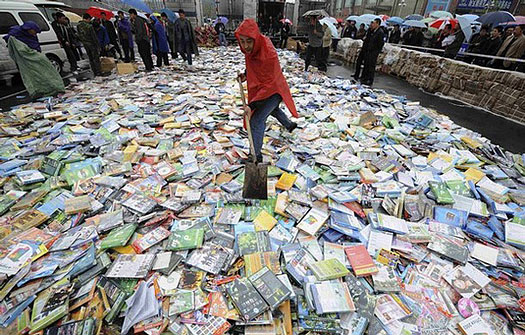
Everyone is familiar with required reading lists. It starts somewhere in elementary school with books like Out of the Dust and Number the Stars, and expands as time goes on into To Kill A Mockingbird, Romeo and Juliet, The Heart Is A Lonely Hunter, and Brave New World. Educational institutions try to introduce as many cultures, time periods, and ethnicities to growing adolescents. Young adults are required to read about diversity.
Recent debates revolve around the expansion of that diversity in required reading - do queer characters have a place on school lists? Alasdair Duncan, author of Sushi Central (later published as Dance, Recover, Repeat), recently spoke on a panel called Boy Meets Boy at the National Young Writers Festival in Newcastle, Australia, which "centered...on whether it is possible - or even necessary - for novels with queer protagonists to find a meaningful place on school reading lists." The discussion prompted Duncan to think about how he felt about required reading during high school. Read Duncan's reflection here.
Growing up, the author explains that he, like many of his peers, didn't pay much attention to books they were forced to read. He indulged in required texts, answered the appropriate questions, and then forgot about the novels. The books that stuck with him, he said, were "the books [he] sought out all on [his] own...those are the ones that stayed with [him] and shaped [his] love of good writing." Bret Easton Ellis's Less Than Zero was at the top of Duncan's personal reading list.
He discovered Less Than Zero as a young adult and read its pages as if it were the adolescent Bible. "I didn't know at the time that going through a Less Than Zero phase was a rite of passage for smart, weird teenagers everywhere," Duncan said. "I thought it was just me, and that made the prose and the characters seem that much more alive." It was around this time that Duncan wrote the first draft of his now published book, Sushi Central.
So when the National Young Writers Festival panel came to the conclusion that the time and place for LGBT protagonists on required reading lists was "not any time soon," and that the threat of "concerned parents kicking up a stink" was enough to keep queer novels off school lists, Duncan was disappointed but not dejected. After all, he himself didn't care much about the books he was forced to read. As an LGBT author, he feels that the opportunity for teens to find his work, as well as other influential gay novels, is almost better when young adults are not required to read those texts. "If a kid like I once was happens upon my book somewhere and it opens their eyes to something new or makes their world a more interesting place," Duncan said. "Then I think I've done what I set out to do."
Even so, I'm confident that Duncan - and for that matter Alex Sanchez, David Levithan, Martin Wilson, and many others - look forward to a time when required reading lists at school include diversity of not only cultures and genres, but also sexualities and LGBT experiences.
No comments:
Post a Comment